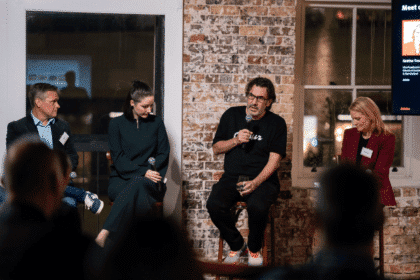In this op-ed, David Campbell, partner at Brand Rebellion unpacks the lessons that the cultural review into Nine Network can teach us on the complexities of navigating changes in work place cultures.

The allegations outlined in the independent review of Nine Entertainment’s workplace culture are abhorrent and well below par with what’s expected in modern Australia. But at the same time, the cultural issues are part of a pattern that may be familiar to other large organisations, especially those in high-pressure industries.
The review provides 22 recommendations for improvement, most of which focus on setting up high-level frameworks and policies. While high-level recommendations are important, they don’t necessarily address the complexities of transforming workplace culture in a large, established organisation. Organisations must move beyond the abstract, focusing on actionable measures that can lead to real change.
Cultural transformation in large corporations can’t be achieved through top-down directives alone. It requires deep engagement with employees at all levels, a commitment to long-term behavioural change, and a willingness to invest in both material resources and a genuine shift in mindset.
One of the biggest challenges in changing workplace culture is navigating the fine line between promoting hard work and protecting employee wellbeing. Nine Entertainment, like many organisations in high-pressure sectors, has traditionally operated under a “work hard, play hard” mentality – a motto that is increasingly coming under scrutiny.
While this approach may have once been seen as aspirational, it often leads to burnout, stress, and a toxic workplace environment. The review serves as a wake-up call, not only for Nine but for any company still relying on this outdated framework.
Organisations can no longer afford to view employee well-being as secondary to performance. In the case of Nine, the allegations point to a culture that prioritised short-term outcomes at the expense of long-term sustainability. This is not just a reputational issue – it’s a commercial one.
If companies saw the value in building a culture of balance, where employees are encouraged to work diligently but are equally supported in their pursuit of personal wellbeing, they would retain empowered, productive staff, leading to improved business outcomes.
The recommendations made in the review are necessary but not sufficient. To make real progress, Nine – and any large organisation seeking cultural reform – must focus on embedding change into daily operations. This includes empowering leadership to model the desired behaviours, investing in mental health and wellbeing programs, and ensuring that policies are not just paper promises but are actively monitored and enforced.
Transparency with staff is also critical. Open communication about the steps being taken, why they are necessary, and how they will be implemented is essential to rebuilding trust and creating a culture that employees feel proud to be a part of.
The original intent of “work hard, play hard” was to strike a healthy equilibrium between professional and personal lives. However, its interpretation has too often skewed toward excessive work expectations, with the “play hard” element reduced to superficial perks that fail to address employees’ deeper needs for psychological safety and work-life balance. A modern update to this motto must centre on protecting employees’ mental and physical health, rather than pushing them to extremes.
In the context of Nine Entertainment, the path forward requires management to invest in addressing the root causes of the problems identified in the review and taking concrete steps to create a supportive, balanced, and empowering workplace culture.
The lesson from Nine’s experience is clear: organisations that continue to see cultural investments as merely a safeguard against reputational damage are missing an opportunity. Investing in a healthy work culture should not be viewed as a defensive strategy, but as a proactive step towards achieving greater commercial success.
Companies facing similar issues as Nine must view this review not just as a critique but as an opportunity to rethink how they support their workforce. High-pressure industries in particular must update their understanding of what workplace balance truly means and ensure that psychological safety and wellbeing are cornerstones of their cultural frameworks. Only then will they be able to attract and retain the kind of talent necessary for sustained success.








